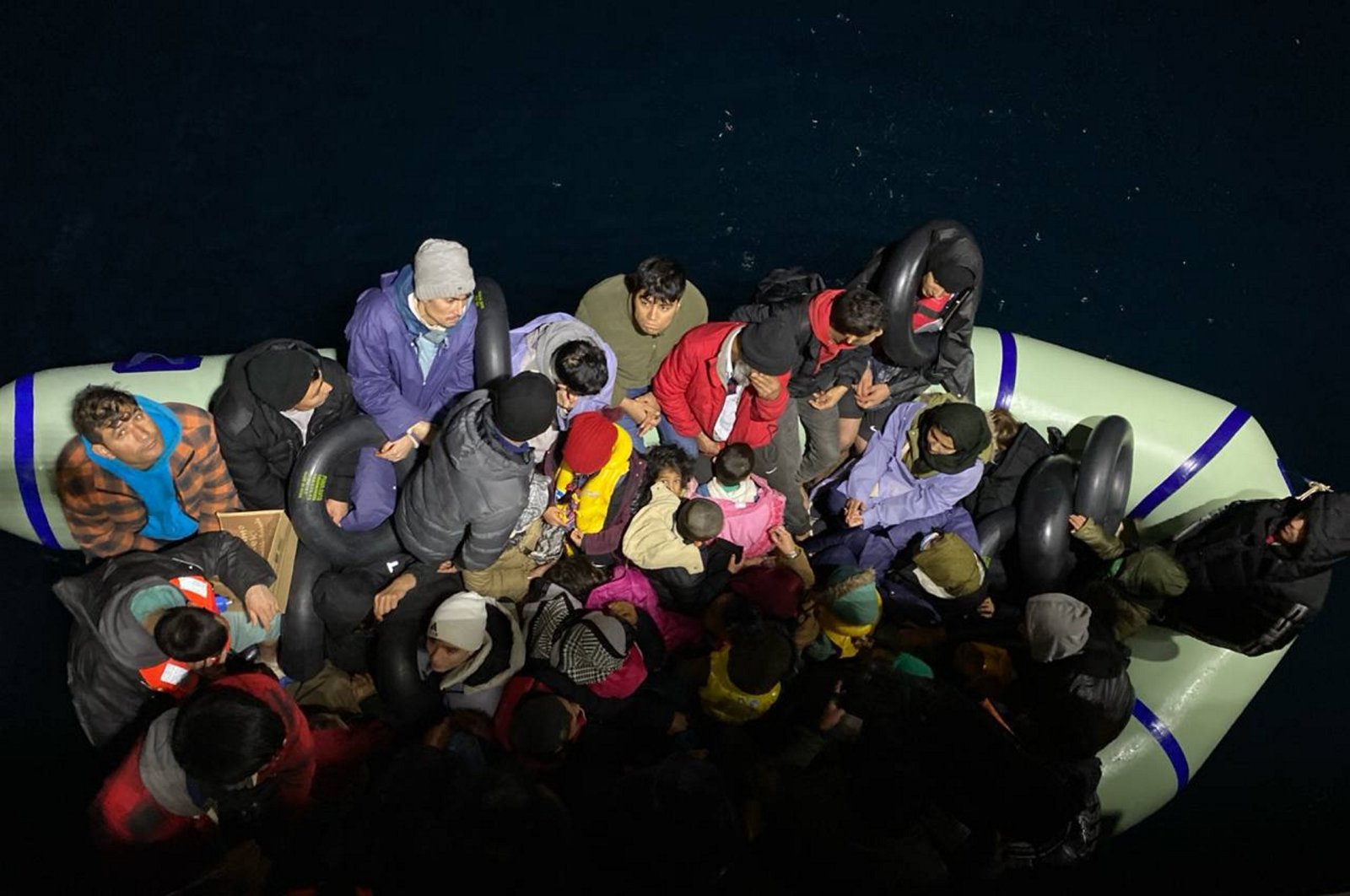
Ankara's fight against irregular immigration continues as the country launched a nationwide sweep targeting irregular migrants and people smuggling them on Monday
Interior Minister announced on Monday that 192 migrant smugglers were detained in nationwide operations which also netted 4,568 irregular migrants.
Ali Yerlikaya said in a social media post that the gendarmerie and police launched the "Shield-4” operation in 37 provinces against irregular migration, including Istanbul, Antalya and Izmir.
"We will never allow human smugglers who are attempting to make our country a target of irregular migration and a transit route. They will be captured one by one and brought to justice,” Yerlikaya said.
The minister said 41 detained smugglers were arrested. Seven others were released with judiciary control while legal proceedings are underway for others.
Meanwhile, the Turkish Coast Guard announced Sunday that it rescued 28 irregular migrants in the Aegean Sea.
Coast guard units rescued the irregular migrants from a rubber boat off Seferihisar district in Izmir province.
Türkiye has been a key transit point for irregular migrants who want to cross into Europe to start new lives, especially those fleeing war and persecution.
The country, which already hosts 4 million refugees, more than any other country in the world, is taking new measures at its borders to prevent a fresh influx of migrants.
Official figures show over 234,000 irregular migrants were intercepted between January and November across Türkiye.
In the same period, authorities apprehended over 9,200 migrant smugglers.
As most irregular migrants try to infiltrate into Türkiye through its eastern borders, the country recently began construction of a security wall and authorities say 80% of the wall and a 1,234-kilometer-long (766.77-mile-long) patrolling strip next to the wall are completed.
This year, the Directorate of Migration set up "mobile migration points” to speed up the processing of irregular migrants. The migration points help law enforcement in the field to check for irregular migrants.
They use a fingerprint database to check the identity of suspected irregular migrants and cut the red tape for legal migrants who have to prove that they have permits, often by visiting police stations.
